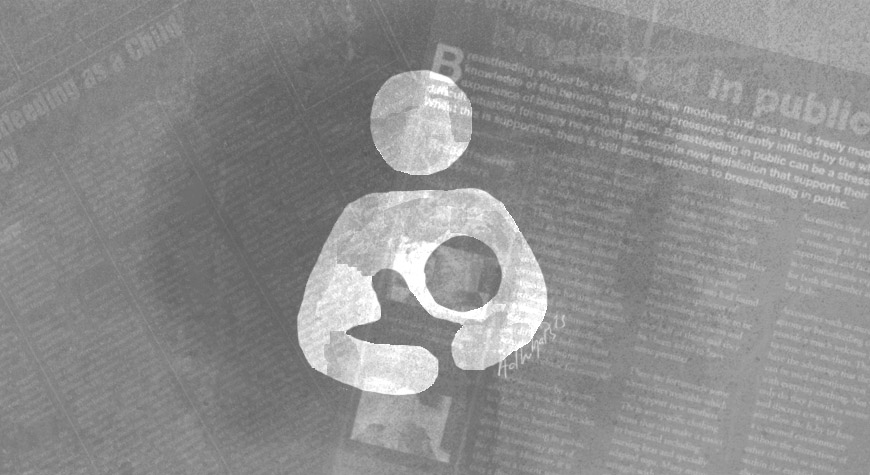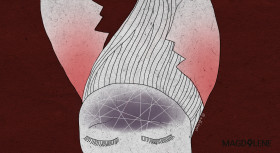I am a mother of a five month old who just found out that breastfeeding a baby without supplementing it with formula milk in Indonesia is a gargantuan task.
When my son was a week old, his second pediatrician prescribed him vitamins due to his decreasing weight. I asked the doctor why my child needed vitamins, and he told me there were many vitamins in formula, but none in breast milk.
A famous doctor practicing at a top private hospital in South Jakarta, he told me this with a straight face. He practically beamed when my mother asked him which formula brand was the best.
After that unfortunate visit, the battle with my parents started. I was accused of being stubborn and selfish for insisting on following the urban mothers’ “trend” of giving exclusive breast milk at the expense of their grandchild.
If you think I’m exaggerating the problem, think again. Many before me—including friends and neighbors—have failed to breastfeed exclusively, and others who managed to do so have had to battle parents, in-laws and evil pediatricians. Listening to their stories and learning from my own experience I dare say that we would be much more successful if we had the backings of the government.
Yes, I blame the government for this. In the beginning, I thought that because breastfeeding exclusively was the most natural and best thing for a baby, I would encounter only minor problems, like learning to lead my son to latch on properly. But it turned out to be a little more complicated than that.
It’s not that we lacked the policies. In recent years the government has issued pro-breastfeeding legislation, including the 2009 health law, the 2012 government regulation and the 2013 ministerial decree. The problem is they are barely enforced.
Many hospitals still “prescribe” formula milk to newborns of unsuspecting parents. Some pediatricians freely dispense uneducated advices, even lie, to parents and grandparents, who insist their grandchildren look chubby. Medical workers often discourage distraught mothers from breastfeeding, effectively suppressing the oxytocin, the “happy” hormone responsible for the effective release of breast milk.
The lack of massive campaign to overturn the wrong perceptions about breastfeeding and formula often lead many new mothers to clash with their parents and in laws, product of an era when the use of formula was so rampant. An era when cow milk consumption was the rule, not the exception, lactivists call it “the dark age”.
New mothers like me are in the early days of transition from the outdated belief that formula milk produces chubby (and supposedly bright if you buy those formula ads) babies, to one in which breast milk is the rule to nurture healthy babies. My generation has to deal with our parents’ generation who fed us formula milk, believing we turned out fine (and it’s true for most case, though that’s not the point). They insist that parents supplement breast milk with formula when they think their grandchildren are not chubby enough.
The problem with supplementing is that in a few months, your breast milk supply will not produce enough milk for your child and there is a high possibility of nipple confusion that your child refuses to breastfeed. This is a problem because many mothers, including working women, want to breastfeed exclusively because even formula manufacturers would not dispute that human breast milk is the best for human babies. And don’t forget that baby formula. They are not cheap.
Mothers often hear that it is OK for them to produce low, very low or no breast milk up to 72 hours after childbirth, because newborns’ still have enough nutrition from the placenta. But many are told by doctors and nurses in some hospitals that they should immediately supplement with formula or they would put the baby in danger. This practice is a criminal offense according to the health law and the government regulation, but it still happens.
Although hospitals that promote early initiation of breastfeeding (IMD) seem to be on the rise, those that dupe parents and grandparents are still here to stay, and these–I might add—are major, well-known hospitals. I’ve heard stories from my friends of pediatricians telling them their baby was allergic to breast milk or “you are not producing enough milk, you have to supplement.”
My pursuit for a new pediatrician eventually led me to one who is an avid campaigner of exclusive breastfeeding. She diagnosed my boy as “tongue tied”, which impeded him from effective breastfeeding. (And, by the way, she told me that her pro-formula colleagues receive Toyota “Vios” by the industry for selling their products).
Had I not found a pro-breastfeeding pediatrician, I would’ve been among those women who watched other breastfeeding mothers with envy.
When I entered motherhood, I had a plan to take it easy and breastfeed my baby for as long as my body allowed me. Within weeks, however, I became a fighter who made a concerted effort, with the support of other lactation fighters on the Internet, to refuse formula supplement as long as I’m healthy and able.
This came from a place in me that cannot accept lies, deception and truth omission, which are all the foundation of formula marketing, thanks, sadly, to the government’s inaction.
About Evi Mariani Sofian
Evi is a journalist with an English daily in Jakarta. Motherhood has dramatically changed 36 wonderful years of her life into a, hopefully, more wonderful future with her son (and husband). She refuses to be called a lactivist but because she believes there is an evil conspiracy against breastfeeding, she sometimes launches into a breastfeeding-campaigner mode upon encountering pregnant parents.








Comments